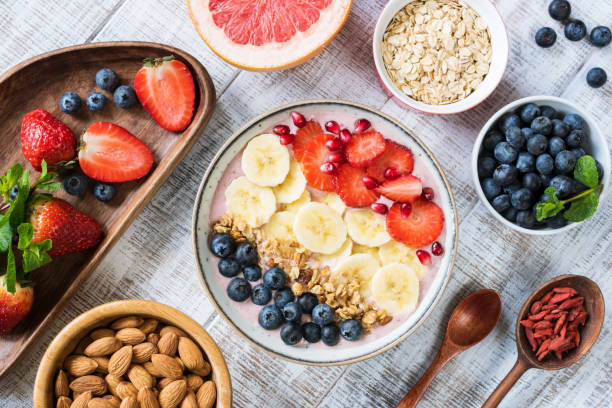- Level 2 & 3, SCO-62, 63 & 64, Phase 10
- +91 99196 00015
- info@fitx.pro
At FitX Pro Gym, we are more than just a fitness center; we are a community dedicated to helping you achieve your health and fitness goals. Located in the heart of Chandigarh & Mohali, we have been empowering individuals of all fitness levels to transform their lives through exercise, nutrition, and a supportive environment.
- Level 2 & 3, SCO-62, 63 & 64, Phase 10
- +91 99196 00015
- info@fitx.pro
- Week Days: 05:30AM to 10.00 PM Sunday: 04:00AM to 09:00

- Latest News
- By fitnessXPro
- 0 Comments
Are Bananas Good for Weight Loss: A Comprehensive Guide
In your fitness journey, incorporating vegetables and fruits is crucial, especially when striving to shed weight and transition from fat to fit.
But do you know is a banana good for weight loss? Many people believe that bananas are the only fruit that gains weight & causes constipation. But the reality is a banana is good for weight loss & can have many health benefits, whether you’re trying to lose weight or improve heart health.
This article explores the potential benefits of bananas, highlighting their role in supporting weight loss and overall well-being. Let’s discover the truth about bananas and their valuable impact on your fitness journey.
How to Eat Bananas for Weight Loss?
If you’re journeying to reduce or aim for weight loss, you might be curious about the right time to incorporate bananas into your diet. Below, we outline the ideal timing and strategies for consuming bananas to support your weight loss goals.
Take Banana Before Breakfast
We all know that breakfast is the most essential meal of the day, so we have to manage what we eat first thing in the morning. Bananas should be your go-to breakfast to lose those extra pounds.
Bananas are known to help you feel satisfied faster and for longer periods of time. They also contain important vitamins and nutrients to help you start your day positively. This will help you control your calorie intake naturally and prevent you from eating before lunch.
Moreover, you can try the “Morning Banana Diet,” a Japanese idea. It aims to increase your awareness of fullness levels so that you can regulate how many calories you eat. It entails having a glass of water and one banana for breakfast.
Good to Eat Banana After Workout
After a workout, it is not unusual to enjoy fatigue and occasional power ranges. However, consuming a banana during exercise is an exquisite approach to enhance power and support your diet.
In this situation, bananas are an appropriate publish-exercising meal. Bananas high in potassium, resistant starch, and carbs can fulfill your hunger, give you a feeling of fullness, and supply you with a brief power increase.
Moreover, you generally tend to devour much fewer calories. At the same time, you manipulate your hunger healthfully, which puts you on the street for weight loss. This is secure and sustainable.
Take as a Snacks for Weight Loss
Still, many people have a question: is a banana good for weight loss or a healthy snack?
But, bananas offer numerous health benefits due to their richness in fiber and carbohydrates. Additionally, they serve as an excellent source of potassium, which plays a crucial role in supporting the body’s nervous and muscular systems.

Furthermore, the combined effects of these components make bananas effective in managing hunger between meals. Opting for banana snacks instead of high-calorie snacks like chips or cakes not only helps curb hunger with fewer calories but also enhances overall health by providing essential nutrients and vitamins.
Nutrition Facts of Banana
Bananas are fresh, adaptable, and moderately priced fruits. They can also assist with weight reduction, digestion, and coronary heart fitness due to the fact they may be loaded with critical vitamins. Let’s take a look at the nutrient statistics of the banana in the table below:
Note: Nutrition facts of Bananas by USDA
| Amount Per | 100 grams | |
| Calories | 89 | |
| % Daily Value | ||
| Total Fat 0.3 g | 0% | |
| Saturated fat 0.1 g | 0% | |
| Cholesterol 0 mg | 0% | |
| Sodium 1 mg | 0% | |
| Potassium 358 mg | 10% | |
| Total Carbohydrate 23 g | 7% | |
| Dietary fiber 2.6 g | 10% | |
| Granulated Sugar 12 g | ||
| Protein 1.1 g | ||
| Vitamin C | 14% | |
| Iron | 1% | |
| Vitamin B6 | 20% | |
| Magnesium | 6% | |
| Calcium | 0% | |
| Vitamin D | 0% | |
| Cobalamin | 0% |
Carbs
Banana is good for weight loss & rich source of carbohydrates, with unripe bananas being higher in starch and ripe bananas being higher in sugar. Starch is a complex carbohydrate that breaks down into glucose for energy. Sugar is a simpler carbohydrate that provides a quicker energy boost.
Unripe bananas include around 70-eighty% starch, which steadily converts into sugar as they ripen. This is why ripe bananas taste sweeter and have a better glycemic index (GI), which increases blood sugar tiers faster than unripe bananas. A medium-sized banana incorporates approximately 27 grams of total carbohydrates, with 23.9 grams being internet carbs.
Both unripe and ripe bananas offer energy for the body. Still, it is important to consider the ripeness when choosing bananas for a particular dietary need.
Fiber
Unripe bananas contain a lot of resistant starch, which goes through your digestive tract undigested. Bacteria ferment this starch in the large intestine to produce butyrate. This short-chain fatty acid seems to improve gut health. Pectin is one of the other forms of fiber that bananas are an excellent source of. Bananas contain a portion of water-soluble pectin.
Moreover, fiber’s impact extends to weight management by increasing a sense of fullness and curbing overall calorie intake. Including bananas in a well-balanced food regimen becomes a simple yet powerful way to harness fiber’s blessings, supporting a wholesome digestive system and standard well-being.
Vitamins & Minerals
Bananas emerge as a nutritionally rich fruit, delivering a diverse range of essential vitamins and minerals that enhance overall health.

Potassium, a vital mineral for muscle function, nerve signaling, and blood pressure regulation, is abundant in bananas. They also provide vitamin B6, crucial for energy metabolism and brain function.
Vitamin C, an antioxidant essential for immune system health and collagen production, is another notable nutrient in bananas.
What are the Health Benefits of Bananas?
Bananas are a nutrient-packed fruit that provides a range of health benefits:
Lower Blood Pressure & Stroke Risk
Bananas are high in potassium, which is a very important mineral for heart health. Many people are not getting enough potassium in their diet. However, banana is a great source, with 10% of the DV potassium.
In the study of PubMed Central, it is also seen that a potassium-rich diet could help lower your blood pressure, reducing your risk of hypertension. Moreover, it helps to reduce cardiovascular disease by 27%. Bananas contain 8% of the DV for magnesium, another important mineral for heart health.
Boost Your Immune System & Support Recovery
Bananas are a valuable source of vitamins, including vitamin C, vitamin B6 and folate. These vitamins play an important role in overall health, strengthening the immune system. Also, it actively participates in red blood cell production. The variety of vitamins highlights all the health benefits of regular banana consumption.
However, it also functions as an electrolyte, so supplying your body with magnesium and potassium after sweat reduces the stiffness and cramping in your muscles after exercise.
Contains Antioxidants
Bananas boast a spectrum of antioxidants, including dopamine and catechins. These antioxidants play a pivotal role in reducing oxidative stress and mitigating inflammation within the body. It also underscores bananas as a valuable component in an anti-inflammatory and health-promoting diet.
Antioxidants aid in preventing free radical-induced oxidative cell damage. Free radicals can accumulate over time and become harmful if their levels in your body rise to a certain point if you do not get enough antioxidants from your diet.
Regulates Blood Sugar Levels
Bananas are a rich supply of soluble fiber, which, during digestion. It dissolves in liquid to create a gel-like substance. This unique feature contributes to the sponge-like texture of bananas.
Additionally, unripe bananas contain resistant starch, fiber the body does not easily digest. The combination of resistant starch and soluble fiber in bananas may additionally mediate blood sugar levels after food.
It’s advised to limit consumption to one banana at a time for people with diabetes, as consuming a large chunk in one sitting may cause blood sugar levels to rise too high.
Assists in Weight Management
Despite being relatively low in calories, bananas foster a sense of fullness owing to their fiber content. Opting for bananas over higher-calorie snacks not only aids in weight management but also aligns with a health-conscious approach by reducing overall calorie intake.
Additionally, they include a lot of resistant starch and dietary fiber, which may help you feel fuller for longer and eat fewer and smaller meals. Try eating unripe bananas the same way you would plantains if you want to incorporate them into your diet.
Lots of Dietary Fiber
The fiber in bananas is important for digestive health, promotes digestion, and facilitates regular bowel movements.
Unripe bananas contain resistant starch, a kind of fiber that is considered a prebiotic. Prebiotics control to elude digestion and wind up for your huge intestine, where probiotics, the best micro organism to your digestive system, eat them.
Furthermore, ripe and unripe bananas each include pectin, a fiber that could assist melt stools and keep away from constipation. Its dietary advantages include that nutritional fiber helps to preserve a long-lasting feeling of fullness, offering potential assistance in weight reduction efforts.
Unripe Bananas Improve Insulin Sensitivity
Unripe bananas, additionally called inexperienced bananas, incorporate a type of fiber called resistant starch that has been shown to improve insulin sensitivity. Insulin is a hormone that facilitates the body to use sugar (glucose) for energy. When the frame is proof against insulin, it wishes to supply greater insulin to move glucose into cells, which could cause excessive blood sugar ranges and type 2 diabetes.
Resistant starch is a fiber that the small intestine can’t digest. It passes via the small gut and into the big intestine, where intestine microorganisms ferment it. This fermentation procedure produces brief-chain fatty acids, which have been shown to improve insulin sensitivity.
Boost Kidney Health
Bananas can be a healthy part of a kidney-friendly weight-reduction plan. Still, it’s essential to consume them moderately because of their potassium content.
However, people with kidney sickness may also have problems excreting potassium from their bodies. It results in high potassium tiers in the blood. This condition is called hyperkalemia, which could motivate critical headaches, which include abnormal heartbeat, muscle weak spots, and even death.
Natural Energy Sources
Bananas are a natural source of carbohydrates, including natural sugars such as glucose, fructose and sucrose.
These unique ingredients provide a quick and sustainable energy boost, positioning bananas as an ideal choice for a pre-workout snack. Also, it is a quick midday energy pick-me-up during the day.
Simple Items Can Add to Your Diet
In addition to being delicious and healthful, bananas are also practical. They seamlessly enhance the flavors of yogurt, cereal, and smoothies and serve as an excellent topping for whole-grain toast with peanut butter. It can even be used in baking and cooking in place of sugar.
Their ease of transport and digestion make bananas a hassle-free snack. Simply peel them, and you’re ready to enjoy this portable and good-to-go fruit.
Diet and Safety Tips
Bananas are a versatile and nutritious addition to your diet. Here are quick tips:
Diet Tips:
- Start your day with a banana: Enjoy it alone, or add to cereal, oatmeal, or yogurt for a nutritious breakfast.
- Snack on bananas: Grab them for a healthy snack, pair them with nut butter yogurt, or blend them into a smoothie.
- Bake with bananas: Swap sugar with mashed bananas in muffins, cakes, or bread for a healthier alternative.
- Natural sweetener: Use mashed bananas to sweeten smoothies, sauces, or desserts instead of processed sugars.
- Pre- and post-workout: Boost energy before exercising and aid recovery by including bananas in your meals.
Safety Tips:
- Choose ripe bananas: It is much sweeter and easier to digest.
- Moderate consumption: You can enjoy in moderation for a balanced diet.
- Be mindful of allergies: Rare but possible; consult a professional if you experience adverse reactions.
- Store properly: Keep at room temperature away from direct sunlight.
- Wash before eating: Rinse under running water to remove dirt and residue.
Conclusion
Bananas can be part of a healthy diet weight-reduction plan while provided as a part of a balanced food regimen. They help weight reduction efforts with many benefits, including fiber content material, moderate glycemic index, and potassium content material.
However, it’s critical not to forget that total caloric consumption and meal content play an essential role in weight loss. Consult a health professional or registered dietitian for appropriate steerage on a banana inclusion diet regime that meets your individual needs and goals.


Leave a comment